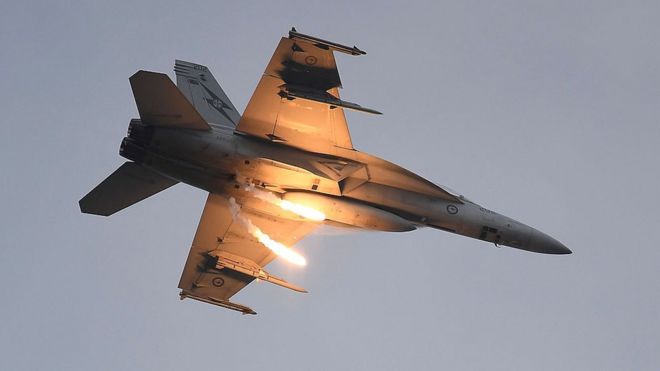 Defence Minister Marise Payne said Australia will end air strikes against Islamic State in Iraq and Syria and bring its six Super Hornet planes home after three years as part of the U.S.-led coalition in the Middle East .
Defence Minister Marise Payne said Australia will end air strikes against Islamic State in Iraq and Syria and bring its six Super Hornet planes home after three years as part of the U.S.-led coalition in the Middle East .
Payne says the decision was made following the Iraqi declaration of victory over Islamic State. Australia has been in the Middle East as part of the U.S.-led effort against Islamic State since 2014.
She added that other Australian operations in the region would continue, with 80 personnel who are part of the Special Operations Task Group in Iraq, including Australian special forces, continuing their deployment.
Australian soldiers have also been training Iraqi troops at the Taji military base outside Baghdad.





